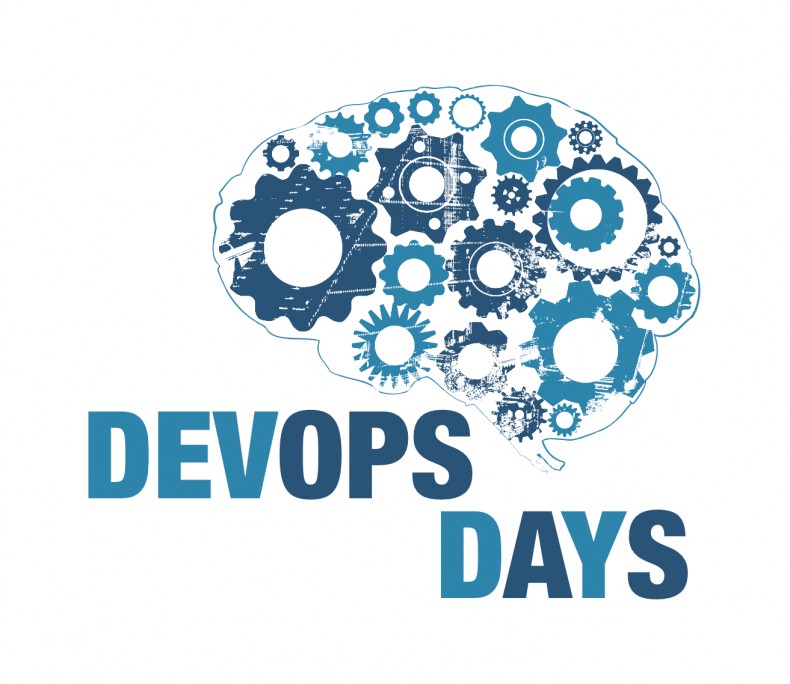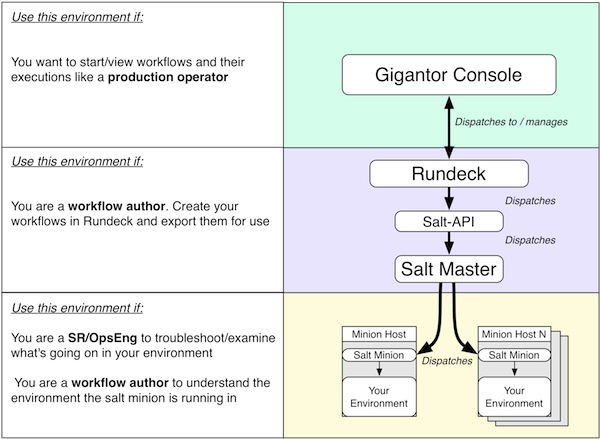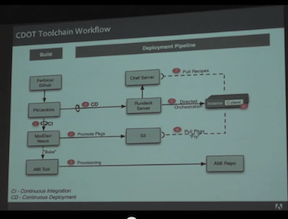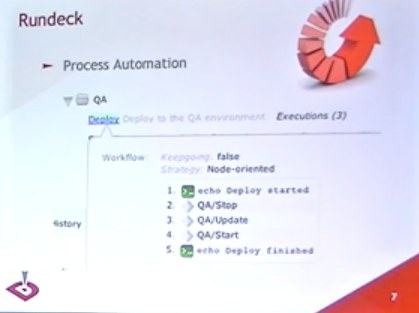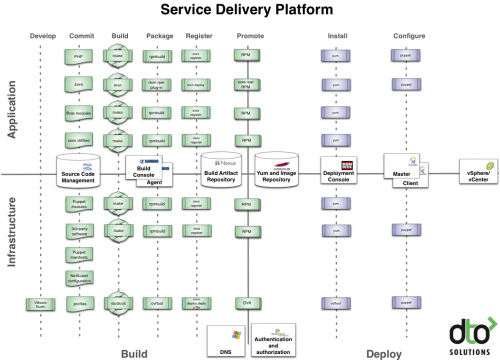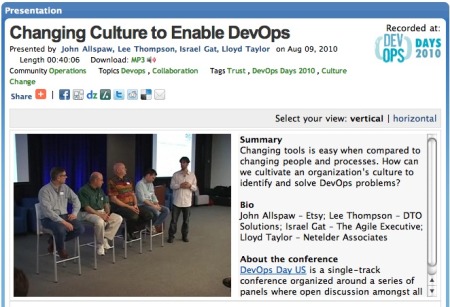Value of DevOps Culture: It’s not just hugs and kumbaya
Damon Edwards /
The importance of culture is a recurring theme in most DevOps discussions. It’s often cited as the thing your should start with and the thing you should worry about the most.
But other than the rather obvious idea that it’s beneficial for any company to have a culture of trust, communication, and collaboration… can using DevOps thinking to change your culture actually provide a distinct business advantage?
Let’s take the example of Continuous Deployment (or it’s sibling, Continuous Delivery). This is an operating model that embodies a lot of the ideals that you’ll hear about in DevOps circles and is impossible to properly implement if your org suffers from DevOps problems.
Continuous Deployment is not just a model where companies can release services quicker and more reliably (if you don’t understand why that is NOT a paradox, please go read more about Continuous Deployment). Whether or not you think it could work for your organization, Continuous Deployment is a model that has been proven to unleash the creative and inventive potential of other organizations. Because of this, Continuous Deployment is a good proxy for examining the effects of solving DevOps problems.
Eric Ries sums it up better than I can when he describes the transformative effect that takes place the further you can reduce the cost, friction, and time between releases (i.e. tests to see if you can better please the customer).
“When you have only one test, you don’t have entrepreneurs, you have politicians, because you have to sell. Out of a hundred good ideas, you’ve got to sell your idea. So you build up a society of politicians and salespeople. When you have five hundred tests you’re running, then everybody’s ideas can run. And then you create entrepreneurs who run and learn and can retest and relearn as opposed to a society of politicians.”
-Eric Ries
The Lean Startup (pg. 33)
That’s a business advantage. That’s value derived from a DevOps-style change in culture.
